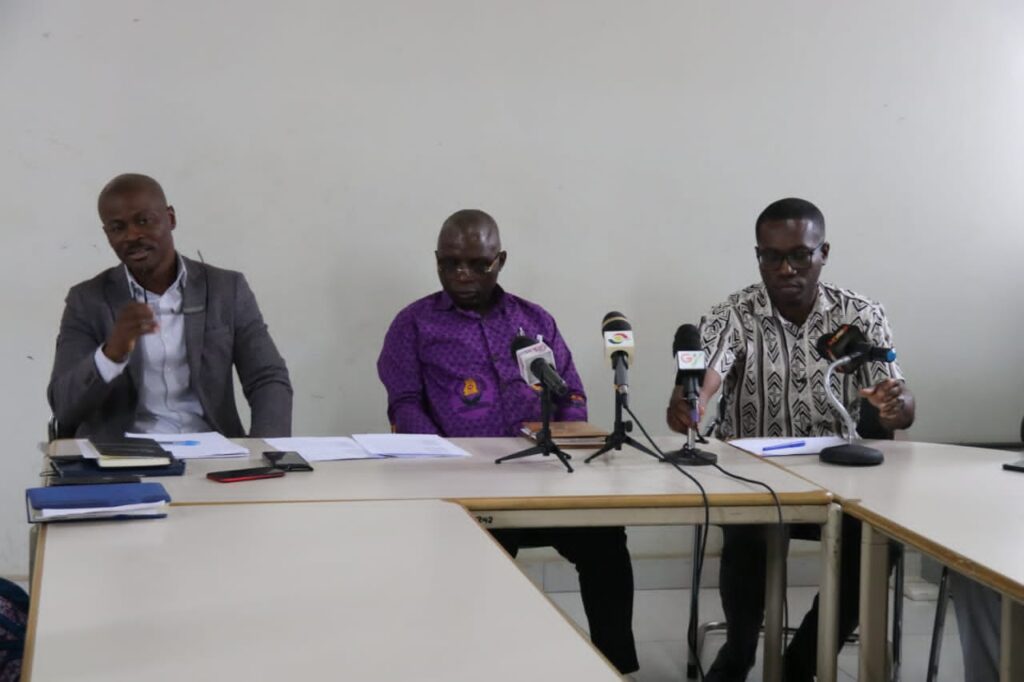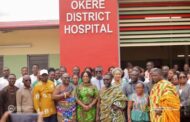The Eastern Regional Health Directorate has revealed alarming statistics regarding viral hepatitis in the Region.
According to the Regional Health Director, Dr.Winfred Ofosu, in 2022, there were 2,091 cases with 16 deaths, and in 2023, 2,257 cases with 17 deaths.
By the end of June 2024, 1,000 cases with 14 deaths have been recorded.
It is estimated that up to 90 percent of individuals are unaware of their hepatitis status.
Addressing the media in Koforidua on Friday ahead of World Hepatitis Day 2024, observed annually on July 28, Eastern Regional Director of Health, Dr. Winfred Ofosu, emphasized the urgency of the situation. The theme for this year is “It is Time for Action Now.”
“Worldwide, an estimated 354 million people live with hepatitis B or C, with 2.2 million new infections acquired yearly and 1.3 million deaths from liver disease and cancer,” Dr. Ofosu stated. He noted that hepatitis B is particularly prevalent in sub-Saharan Africa, including Ghana. “The Global Hepatitis Report 2024 estimates 2.9 million cases of hepatitis B and 443,000 hepatitis C active infections in Ghana,” he added. Hepatitis B affects 8 to 12 percent of Ghanaians, making it a country with high prevalence.

Dr. Ofosu explained that hepatitis B and C are spread through bodily fluids, including blood, semen, and vaginal secretions. “The main modes of transmission are unprotected sexual contact, mother-to-child transmission during delivery, injecting drug use, and contaminated blood products,” he said. For adults who contract hepatitis B, less than 10 percent develop chronic infection. However, he warned, “90 percent of babies born to infected mothers without immediate immunoglobulin and vaccination progress to lifelong infection.”
To combat the hepatitis crisis, the Eastern Regional Health Directorate has announced several key initiatives. “Enhanced screening programs are crucial for successful management outcomes,” Dr. Ofosu emphasized. Key populations, including pregnant women, healthcare workers, and people living with HIV, are encouraged to undergo screening. The general population is also urged to get screened at any health facility.
“For those living with hepatitis, timely and effective treatment is essential,” Dr. Ofosu noted. The Eastern Regional Hospital provides free medication for hepatitis C infection. Every Friday, a specialist clinic attends to hepatitis patients. “Almost every hospital in the region can screen and provide some level of care for hepatitis,” he assured, encouraging people to access these services.
Vaccination is another critical component of the strategy. “Vaccines for hepatitis B are available for all at-risk age groups,” Dr. Ofosu said. Efforts are being made to introduce the vaccine at birth for all children.
Extensive public awareness campaigns are also underway. “Knowledge is power,” Dr. Ofosu stressed. These campaigns aim to educate communities about hepatitis prevention, the importance of vaccination, and the need for regular health check-ups.
“Hepatitis services are integrated into our primary healthcare system,” Dr. Ofosu added, noting that this integration makes screening, vaccination, and treatment part of routine care.
Dr. Ofosu highlighted the crucial role of the media in spreading awareness and educating the public about hepatitis. “Your ability to reach and inform the public is unparalleled,” he said, calling on media professionals to support efforts to encourage people to get screened, vaccinated, and treated.
As World Hepatitis Day 2024 approaches, the call to action is clear. “We have the tools, knowledge, and resources to fight hepatitis,” Dr. Ofosu concluded. “What we need is the collective will to use them effectively. Together, we can make hepatitis history in the Eastern Region of Ghana.”
Source:Mybrytfmonline.com/Obed Ansah
















































